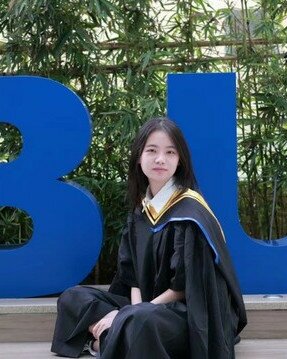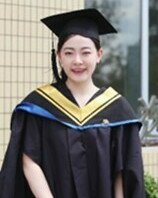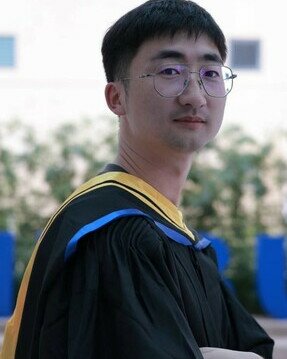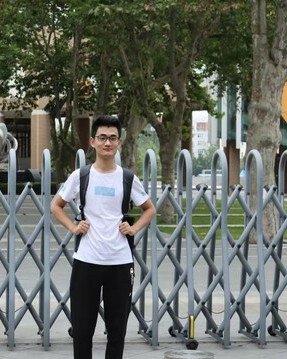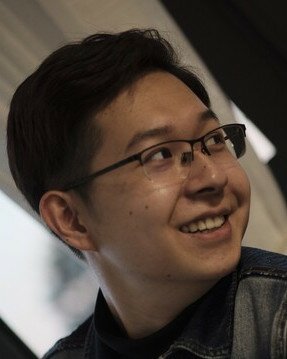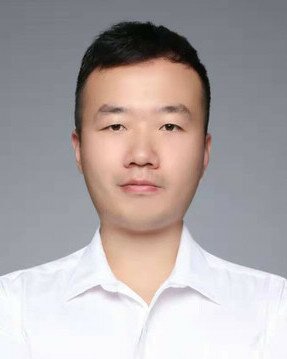Programmes
Aims and outcomes
The curriculum provides students with theoretical knowledge and a broad exposure in the topics of energy harvesting, storage, conservation, carbon audit and energy economics. It also provides hands-on training experience through various projects and experiments in environment monitoring, low-carbon technology, energy harvesting, automated solar tracker, photovoltaic devices, solid-state lighting, electricity, and many others. The program also encourage our students to actively seek for internship opportunities in relevant industries, research institutions, organizations and the existing local/international links to our students to make them more competitive in their career endeavor.
The aim of our programme is to train technologists in the area of science and technology. We also see an importance in the graduates’ ability to understand and appreciate the implication of the technologies on society. To this end, elective courses that focus on the impact of green technology on social and economic issues are also offered. To stimulate and enhance student learning, we have an experimental laboratory course besides the in-depth independent project all students must complete to graduate.
Graduation Requirements:
The courses are 3-unit each and students need to take a total of 30 units for graduation. The degree of Master of Science in Green Technology (Energy) shall be rewarded to students who have satisfactorily completed all the course requirements. To fulfill graduation requirements, students should obtain Grade C- or above in all courses; and a cumulative GPA of 2.5 or above.
AY 2025/26
Full-time (1 year)
| Semester | Course | Units |
|---|---|---|
| 1 | PHYS7320 Renewable Energy Technologies I
| 3 |
| 2 | PHYS7330 Renewable Energy Technologies II
| 3 3 6 |
| 3 (Summer term) | PHYS7340 Energy Storage and Harvesting Technology
| 3 3 3 |
Part-time (2 years)
| Year | Semester | Course | Units |
| 1 | 1 | PHYS7320 Renewable Energy Technologies I
| 3 3 |
| 2 | PHYS7330 Renewable Energy Technologies II
| 3 3 | |
| 3 (Summer term) | PHYS7340 Energy Storage and Harvesting Technology | 3 |
| Year | Semester | Course | Units |
| 2 | 1 | PHYS7360 Green Laboratory | 3 |
| 2 | PHYS7371 Project in Green Technology l
| 3 3 | |
| 3 | PHYS7372 Project in Green Technology II
| 3 3 |
* The offer of courses subject to resources and manpower availability
Seminars: Seminars given by invited speakers from outside institutions and industries will be organized frequently. Students will be inspired on the most frontier research and latest developments in green technology.
Dissertation: The MSc Dissertation will be submitted in the last semester as an essential part of the course. This is where students demonstrate their mastery of integrating theories and concepts with practical applications to solve real-world problems.
Site Visits: Students will gain practical insight from green energy practitioners or experts by visiting green-tech related industrial sites or relevant departments in government (E.g. Daya Bay Nuclear Power Station, Zero Carbon Building, EMSD Education Path, etc.) to broaden their horizon and industrial network.
Core Courses:
PHYS7320 Renewable Energy Technologies I
After completion of this course, students will learn (i) the origin of renewable energy; (ii) solar energy; (iii) working principle of inorganic and organic solar cells; and (iv) materials science and characterization methods of solar cells.
PHYS7330 Renewable Energy Technologies II
After completion of this course, students will learn (i) the origin of renewable energy flow; (ii) individual renewable energy sources, including solar radiation, wind, ocean waves, water flows and tides, heat flows and stored heat, biomass,; (iii) large scale energy conversion processes; and (iv) Power transmission and energy storage technologies.
PHYS7340 Energy Storage and Harvesting Technology
After completion of this course, students will learn the following: (i) Renewable energy system analysis; (ii) harvesting parasitic energy in daily life; (iii) Harvesting chemical energy; and (iv) energy conservation.
PHYS7360 Green Laboratory
This laboratory course uses personal mobile devices (eg. Android and iOS) as a scientific tool for energy and environmental related experimental measurements and characterizations.
PHYS7371 / PHYS7372 Project in Green Technology I/II
The objective of the course is to enable students to develop mastery of energy harvesting concepts. Students are expected to perform a highly independent work. After completion of this course, they will be able to demonstrate their mastery of course materials and apply what they have learnt in implementing practical problems. Students may propose a topic or select a project from a list of topics provided by the Department.
Elective Courses:
PHYS7410 Physics for Green Technology
This course covers the physics for green technology and environmental science, including classical and fluid mechanics, thermodynamics, electrostatics and electricity, magnetism, optics, and modern physics.
PHYS7420 Energy Usage, the Environment and Sustainability
This course allows students to comprehend the significance of energy sources, their capacity, security, costs and their effects on the environment. The energy production and economic distinction between non-renewable (e.g. coal, gas, oil and nuclear fuel) and renewable sources (e.g. wood, biomass, hydro, solar, wind, geothermal and ocean) upon amongst different countries will be explored. In addition, an examination on the role of nuclear energy and its concerns in radiation, spent fuel waste disposal and safety issue are addressed.
PHYS7350 Smart and Remote Sensing
To provide the knowledge of smart (microcontrollers, smart sensors, IoT) and remote sensing (EM radiation method), instrumentation, data inversion and retrieval algorithm for energy management and environmental monitoring. After completion of this course, students will learn (i) integration of smart sensors, microcontroller interfacing, and mobile device interface , (ii) principles of radiation and energy transfer in the atmosphere, (iii) measurement techniques of atmospheric parameters and constituents, (iv) satellite and remote sensing instrumentation, and (v) data inversion methodology and algorithms for both energy management and environmental monitoring.
PHYS7460 Advances in Displays and Lighting
This course provides students an insight on understanding the principles of displays and lighting that are widely used for application in mobile appliance, automotive lighting, traffic signals, signage, LCD backlighting, advanced displays and solid-state lighting.
PHYS7470 Energy Audit and Management
This is an inter-disciplinary training course preparing for a capability development in energy audit and management. The problem-solving skills and collective knowledge of science and technology in energy management are also available to help students to prepare for professional certification examinations, e.g., the certified energy manager (CEM) under the Association of Energy Engineers (AEE), USA. The course covers the latest energy cost reduction techniques in commercial building and the manufacturing industries. The training focuses on the technology, the economics, the policies and the regulations for effective energy management.
PHYS7540 Advanced Topics in Energy Studies
This course educates students in (a) interactions among energy, economy, and environment; (b) energy market organisation, regulation and deregulation; (c) energy demand, pricing, investment, supply and costs; (d) energy efficiency, conservation and demand management; and (e) risk management, energy security, emissions control, and renewable energy development.
PHYS7550 Smart Grids and Sustainable Power Systems
After completion of this course, students will learn (i) introductory concepts to low carbon power system operation and economics; (ii) concepts of sustainability and emissions; (iii) application and integration of distributed energy resources; (iv) fundamentals of smart grids and low carbon technologies; (v) system level integration challenges for renewables; and (vi) methods of active network management.
PHYS7380 / PHYS7390 / PHYS7400 Advanced Topics in Physics I / II / III
These subjects are specialized subjects which focus on applied physics. Due to availability of instructors, topics include the following: Acoustics, Materials Science, Electronic Instrumentation, Lasers and their Applications, Optoelectronics, Semiconductor Physics, Biophysics, Spectroscopy, Microelectronics and Artificial Intelligence. These subjects can be repeated for credit if topics are different.
Pathways for Graduates
Welcoming Speech
Dr HU Qian, Program Director
You have made the right choice in your career development in taking up an interest in Green Technology (Energy). Energy has become a dominant issue in current times in that sustainable energy usage and the environment directly affect both our quality of life and the success of our economy. In this regards, there will be great changes in the way we need to shape the future of our life style and of our work place. Our program focuses on prevailing alternative energy technologies as well as socio-economic consequences in their implementations. To this effect, we are targeting a wide spectrum of graduates interested in developing these two disciplines.
Apart from courses provided by Department of Physics, students in our program can also select electives offered by other departments. This helps students to diversify in areas such as environmental management that is also integral to our program. As you read the program material, you will discover we have laboratory based course and projects. Here, students get the chance to experience team work in our research laboratories to horn hands-on and problem solving skills. These skills will be put into practice with the summer internship we have in place for our students.
The prospects of learning in an international university and to further your study in a promising career, I look forward to having you joining our university and our program.
The Global AI Challenge for Building E&M Facilities (2022)
- Grand Prize (AWS Most Efficient AI Algorithm Award) + Gold Award
- MIN Rui
- Silver Prizes
- OU Weijin
- HU LiuRuochen
- XIE Maokai
- ZHENG Boyu
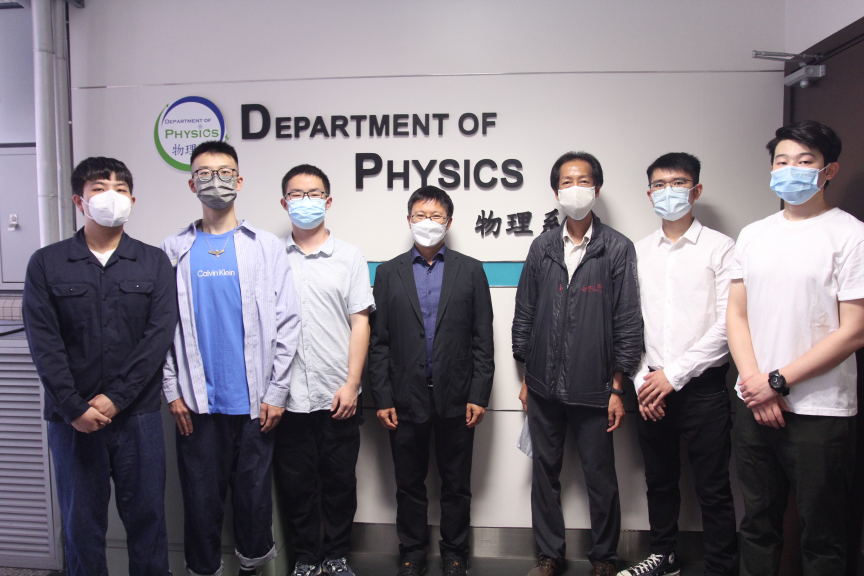
Left to Right: Xie Maokai, Hu LiuRuochen, Zheng Boyu, Prof Zhou Chang Song, Dr Chan Mau Hing, Ou Weijin, and Min Rui.
MSc Orientation Reception
Visit to Shenzhen Energy Dongbu Power Plant
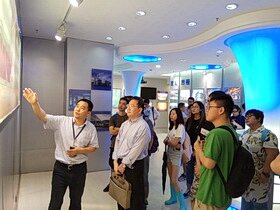
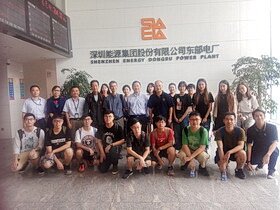
Visit to Daya Bay Nuclear Power Plant
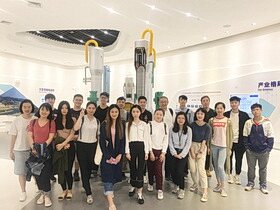
Visit to Lamma Wind Power Station
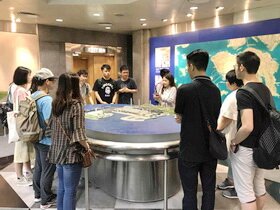
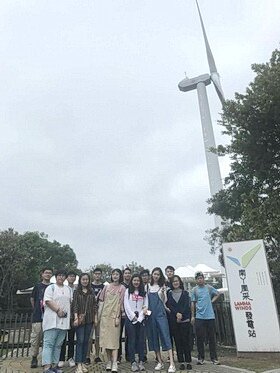
- Consultants in Environment Assessment Agencies
- Researchers / Technicians in Energy companies or Power Utilities
- Energy / Environmental Engineers or Auditors
- Analysts in Energy Policies
- Further Study for PhD Programs
Program Tuition Fee:
HK$ 181,500 (2026/27)
Scholarships:
- Every year, students who are officially admitted and accept offer to the programme, and satisfied the English result, academic and interview performance will be considered for the Entrance Scholarship of HK$10,000 or HK$20,000.
- Every year, the top 3 students in term of cumulative GPA score will be awarded with Merit Scholarship. They will be presented with scholarships valued HK$10,000, HK$7,000 and HK$5,000 respectively.
Other Scholarships and Sponsorships:
2025/2026:
Hong Kong Future Talents Scholarship Scheme for Advanced Studies (FTSS) offered by the University Grants Committee (UGC), provides scholarships for meritorious local students to study in our program which target priority areas that are conducive to the development of Hong Kong. For details, please refer to the UGC's website (https://www.ugc.edu.hk/eng/ugc/activity/ftss.html).
2024/2025:
5 Scholarships from AEE HK Chapter for best performance in CEM exam*
2023/2024:
3 Scholarships from AEE HK Chapter for best performance in CEM exam*
2020/2021:
5 Scholarships from AEE HK Chapter for best performance in CEM exam*
(Because of COVID-19, CEM training and scholarship were cancelled)
2019/2020:
5 Scholarships from AEE HK Chapter for best performance in CEM exam*
10 full sponsorship of AEE AGM cum Annual Dinner
20 quota of certified professional training course on “Grid Connected Renewable Energy Power Generation System”
2018/2019:
7 Scholarships from AEE HK Chapter for best performance in CEM exam*
55 full sponsorship of AEE Student Membership fees
2017/2018:
5 Scholarships from AEE HK Chapter for best performance in CEM exam*
10 Scholarships for Environmental Technology and Green Culture Beijing Study Tour
2016/2017:
3 Scholarships from AEE HK Chapter for best performance in CEM exam*
*For details, please click: https://www.aeecenter.org/certifications/certifications/certified-energy-manager
*詳情請參閱以下網站:https://www.aeecenter.org/certifications/certifications/certified-energy-manager
Useful Links Related to Energy Policy in Hong Kong
Student Membership of Association of Energy Engineers:
https://www.aeecenter.org/memberships
Energy Efficiency & Conservation:
https://www.emsd.gov.hk/en/energy_efficiency/about_energy_efficiency_and_conservation/
Environmental and Energy Policy:
http://www.epd.gov.hk/epd/english/about_epd/env_policy_mgt/env_policy.html
Promoting energy efficiency (from CLP):
https://www.clp.com.hk/en/residential/low-carbon-living
Downloads
Please click below picture to browse the MSc in Green Technology (Energy) programme introduction:
Please click below picture to browse the MSc in Green Technology (Energy) programme leaflet:
Please click the following link to watch the video:
Programme Admission Talk 2014 (香港浸会大学绿色科技(能源)理学硕士课程2014年招生宣讲会)
Enquiries
Department of Physics
Hong Kong Baptist Unviersity
| Tel: | (852) 3411 5817 |
| Fax: | (852) 3411 5813 |
| Email: | physmsc@hkbu.edu.hk |
| WeChat: | physmscgte |
| Website: | http://physics.hkbu.edu.hk/programme/postgraduate/msc-in-green-technology-energy |
Admission
Admission Requirements:
To be eligible for admission, applicants:
should possess a bachelor’s degree from an accredited university or recognised institution of higher studies; although preference will be given to holders of degrees in Science or Engineering, we welcome a multi-disciplinary intake of students, as this is consistent with the special character of our programmes. OR
- should possess a professional qualification equivalent to tertiary academic level, from the Hong Kong Institution of Engineers, a member institute in the British Engineering Council, etc.;
- with work experience is an advantage but not essential;
- who are non-local candidates from an institution where medium of instruction is not English have to satisfy any one of the following English proficiency requirements:
- a TOEFL score ≥ 537 (paper-based test) or 74 (internet-based test);
- an overall band score ≥ 6.0 in International English Language Testing System (IELTS);
- score ≥ 450 in the new College English Test (CET6) of China or a pass in the old CET-6 test.
Application Procedures:
Applicants can apply online at https://iss.hkbu.edu.hk/amsappl_pg/welcome.jsf
For details of application, please visit Academic Registry
Application Periods:
1st round: Early October to Early April
2nd round: Early April to early June
Applicants please visit Academic Registry for up-to-date information about the application schedule.










